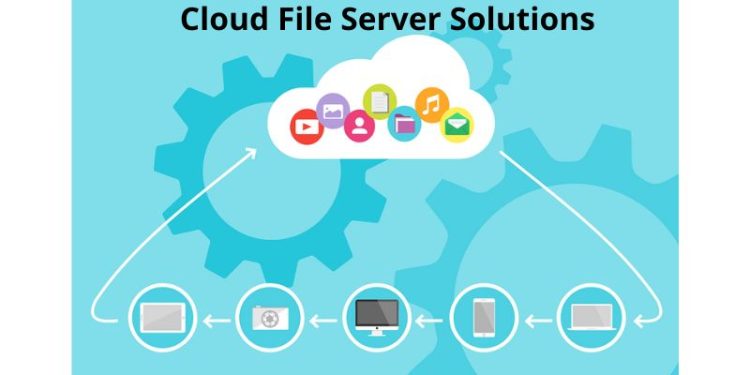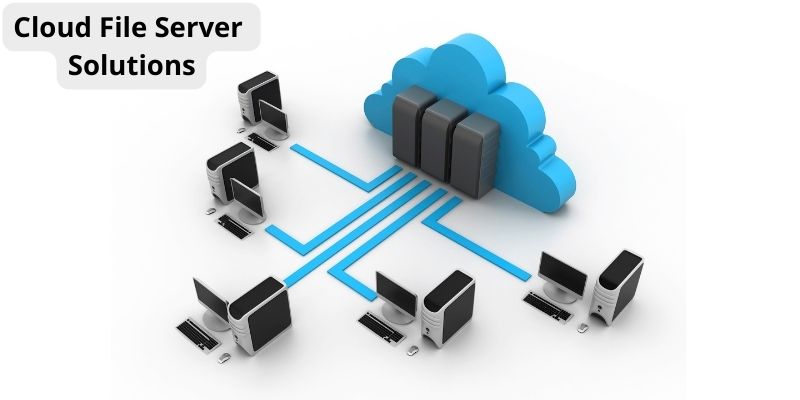The top options when it comes to Cloud File Server Solutions offer dependable service at a reasonable cost while offering a flawless result.
Cloud File Server enables an endless number of servers to operate as a single, integrated system, in contrast to shared, VPS, and dedicated server hosting packages, which depend on a single physical server at a time.
The best Cloud File Server Solutions alternative boosts scalability, availability, and performance because there are so many resources at their disposal.
Whether your next project is prioritized by cost, operating system, performance, or support, we are convinced that we can recommend the best Cloud File Server Solutions supplier.
Contents
What is a Cloud File Server?
A Cloud File Sever is a decentralized cloud storage platform that grants common access to file data. Users have the ability to create, delete, edit, read, and write files, as well as arrange them methodically in directory trees for easy access.
What is Cloud File Sharing?
Cloud File Sharing is a distributed cloud storing platform that offers open access to file data. Users have the ability to make changes to, delete, read, write, and alter files. They can also arrange the files logically in directory trees for easy access.
How does Cloud File Server help with collaboration?
Cloud File Server enables team members to simultaneously access, view, and edit the same files in real time from practically anywhere. Users and groups can see edits as they are made, and changes are synced and stored so that everyone can access the most recent version of the document. The advantages of collaboration through cloud-based file sharing are numerous:
- Even with individuals who are far away, cooperate and accomplish shared objectives.
- Flexible work hours by delegating duties to team members in various time zones.
- Large files, like music or video files, can be shared and edited with ease.
- Get instantaneous alerts when files are updated or edited.
- By adding comments to shared files, people can express thoughts or suggestions.
What applications for Cloud File Server are there?
Cloud file server gives you the freedom to install, manage, and maintain all of your data on the cloud with ease as well as support and interface with existing apps. Organizations are able to support a variety of applications and sectors because to these two major advantages. Cloud file storage is best suited for use cases including user base directories, development environments, media stores, and content repositories. Here are a few use cases for storing files as examples.
Web distribution
When connecting backend applications, the requirement for shared file storage for web distributed applications might be difficult. A website’s content is typically served by a number of web servers, each of which requires access to the same set of files. Cloud file storage can be included into your web applications since these solutions follow the same file-level protocols, naming standards, and permissions that web developers are used to.
Content management
A common namespace and access to the file system hierarchy are necessary for content management systems (CMS). CMS installations frequently contain several servers that require access to the same set of files in order to distribute content, much like web delivery use cases. Document and other file archiving can be integrated into an existing CMS process since cloud file storage systems comply to expected file system semantics, file naming conventions, and permissions that developers are familiar with.
Analysis
Analytics may need a lot of data storage and additional scalability to handle growth. Additionally, this repository must have the capability to transmit data to analysis tools. Many analytics workloads operate with data through the file interface, rely on functions like file locking, and need the ability to write to specific areas of the file. It is perfect for offering an easily integrated file sharing solution because cloud file storage supports common file-level protocols and can expand capacity and performance. interface with already-existing big data and analytics operations.
Media and entertainment
The digital media and entertainment industry’s workflows are ever-evolving. Many businesses employ hybrid cloud installations, and they require standardized access via concurrent protocol access or file system protocols (NFS or SMB). These workflows call for adaptable, dependable, and secure access to data from pre-built solutions created just for you and your collaborators. Rich media content storage for processing and coordination can be integrated into content generation, digital supply chains, media content playback, information transfer, analysis, and storage since cloud file storage adheres to existing file system semantics.
Base directory
Many cloud operations can benefit from using a base directory to store files that only particular users and groups can access. Businesses who want to profit from the cloud’s scalability and cost advantages will give all of their users access to the base directory. Customers may maintain and move applications that require this functionality to the cloud since cloud file storage solutions follow common file-level protocols and standard authorization models.
Backup of a database
Using current techniques, software, and semantics for data backup can result in solitary disaster recovery scenarios with limited recovery options. Many businesses wish to benefit from the adaptability of storing database backups in the cloud, whether it’s for development or testing purposes or for the temporary protection of earlier versions during updates. As a normal file system that can be mounted from database servers, cloud file storage can be a great tool for building portable database backups. dynamically utilizing enterprise backup software or native application tools
Development tools
The ability of development environments to collaborate and share unstructured data in a safe and secure manner while they create their newest inventions can be a challenge. Using shared cloud file storage offers an organized and secure repository available in a cloud development environment, which is necessary for the organized sharing of code and other information. A scalable and highly available solution, cloud file storage is perfect for orchestration.
Storage for containers and serverless applications
Because they can be easily supplied, are portable, and support process isolation, containers are excellent for creating microservices. No matter what version it runs on, a container that requires access to the original data each time it starts up might ask for a shared filesystem to which it can connect.
All the containers in a cluster may have access to persistent shared data through cloud file storage. With serverless cloud, you can enhance flexibility while spending less time worrying about the security, scalability, and availability of your applications. For instance, AWS Lambda allows you to run mission-critical and massive serverless applications. For exchanging data that must endure beyond and between Lambda function runs, cloud file storage can offer a highly accessible and robust serverless data store.
End-user computing
End User Computing (EUC) is a group of technologies that provides secure remote access to the workstations, apps, and data used by your workforce. required to do the task. EUCs are used by modern enterprises to enable their staff to operate safely, at scale, from a variety of locations, and on various devices. Secure, dependable, and scalable file storage solutions are necessary for EUC technologies like maintained desktops and document management systems.
Conclusion
For whatever reason, you should invest time, money, and effort into learning how to design a process in Cloud File Server. You can do things with it.





